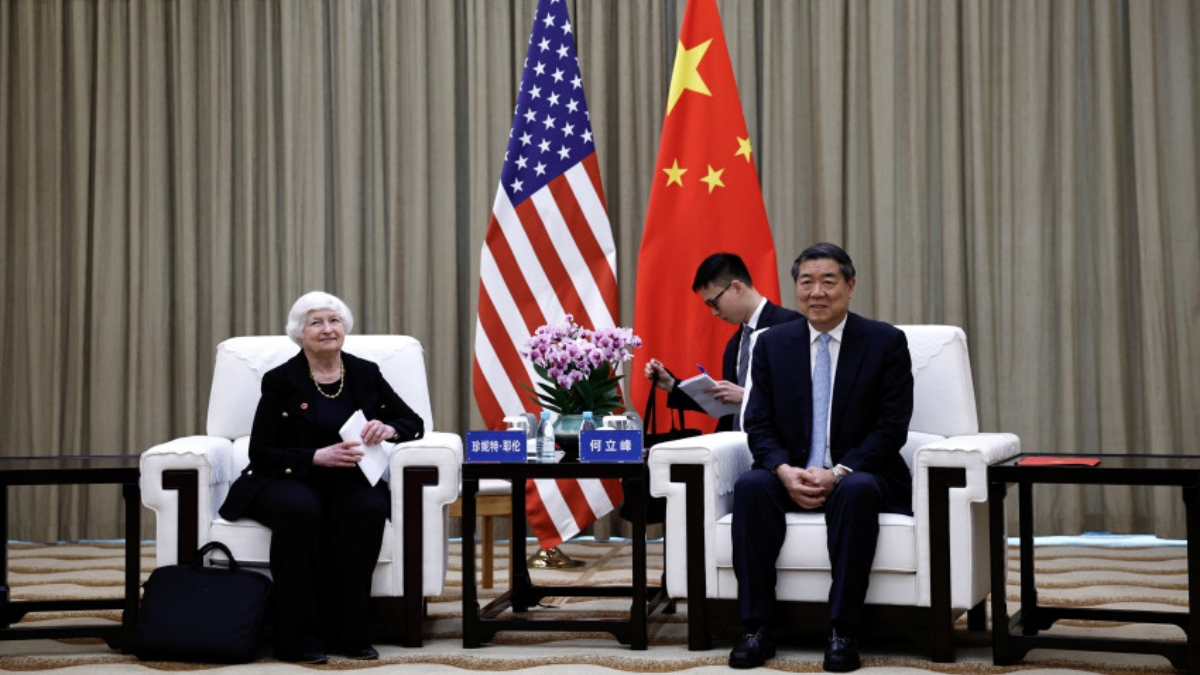There is more work to be done on the US-China trade and economic relationship and it is not certainly known what it will endure in the near future, said US Secretary of Treasury Janet Yellen after concluding a four-day visit to China.
Yellen visited China amid concerns of cheap Chinese exports flooding US and other Western markets. The Western governments are concerned that such exports could eat into the share of US and Western manufacturers and potentially have an effect on jobs.
There was no immediate breakthrough from the visit. Experts said that Yellen’s visit was part of a broader strategy of US President Joe Biden’s administration to manage the economic and trade relationship with China, the principal US strategic rival.
It’s not going to be solved in an afternoon or a month: Yellen
Acknowledging the complications of the issues the Biden administration is seeking to address, Yellen said that the situation is not going to be solved in an afternoon or in a month.
In a statement after concluding her visit, Yellen said that she had “extensive, direct, and productive meetings” in China. She said the talks sought to address, among other issues, “the potential impact of Chinese industrial overcapacity on manufacturers in America and globally”.
This is a reference to concerns that Biden administration and Western partners have about China’s industrial capacity going overboard. They believe that China has artificially made its green energy-related exports, such as electric vehicles (EVs), lithium-ion batteries, and solar panels, cheaper that can put Western companies at a disadvantage and hit Western jobs upon flooding Western markets.
Impact Shorts
More Shorts“I think the Chinese realise how concerned we are about the implications of their industrial strategy for the United States, for the potential to flood our markets with exports that make it difficult for American firms to compete,” said Yellen in Beijing after a series of meetings with top Chinese officials, including with He Lifeng, the Vice Premier of China and the head of the Chinese Central Financial Commission.
More tarrifs or reforms: What to expect from Yellen’s visit?
Experts have given mixed reactions on what to expect from Yellen’s visit. Ryan Hass, a Senior Fellow at the think tank Brookings Institution, was quoted as saying by AFP that the visit was not designed to produce “headline outcomes”.
The visit was “a piece of a broader strategy” towards cooperation in areas like illicit finance and climate finance while also explaining President Joe Biden’s moves to protect US national security and it reflects the Biden administration’s efforts to manage ties diplomatically, said Hass.
The report quoted Ilaria Mazzocco of the Center for Strategic and International Studies (CSIS) as saying that a potential outcome of the visit is “more tariffs, or at least investigations that could pave the way for more tariffs”. She further said that, considering how the US and Europe are on similar grounds on the issue, there might be a joint action on the issue.
On her part, however, Yellen struck a hopeful note and said that China was engaging in talks with good faith and that progress was being made.
“I do not want to see the US economic relationship or the overall relationship with China, deteriorate and fray,” said Yellen.
While fresh tariffs may be levelled, it is unlikely that current tariffs and restrictions on Chinese firms in the sphere of semiconductors may be reduced as it’s the election year in the US and Biden administration is unlikely to make such a move at this time.
“There is little prospect of a significant de-escalation of tariffs and other trade restrictions imposed by Washington, but avoiding any further escalation of overt bilateral trade hostilities in the coming months would in itself be an accomplishment for both sides,” said Eswar Prasad, a former head of the International Monetary Fund’s (IMF) China division in a report by The New York Times.
)